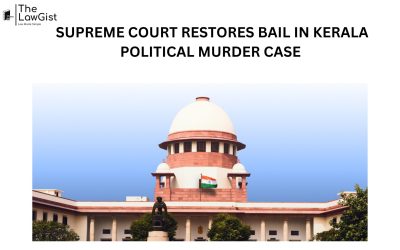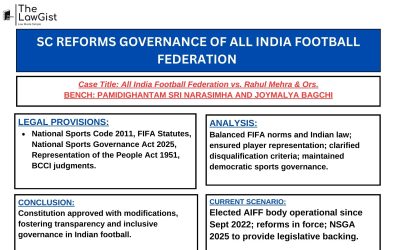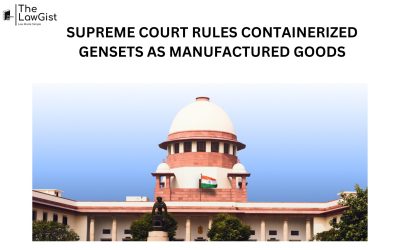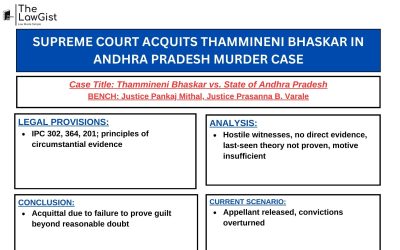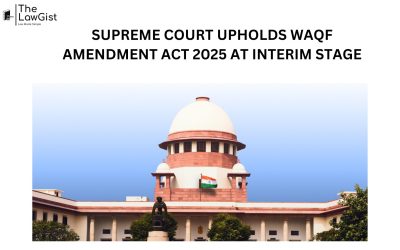
Legal highlights of Abdul Wahid v. State of Rajasthan case, illustrating key issues in evidence reliability and criminal justice.
SUPREME COURT OVERTURNS CONVICTION DUE TO UNRELIABLE EVIDENCE AND INVESTIGATIVE LAPSES
| Case Title | Abdul Wahid & Anr. vs. State of Rajasthan (2025 INSC 295) |
| Introduction | This case pertains to the conviction of Abdul Wahid, Babu, and Abdul Shakur under Sections 302/149 IPC for the murder of Ahsan Ali. The Supreme Court reviewed the evidence and inconsistencies in witness testimonies, leading to the acquittal of the appellants. |
| Factual Background | On June 25, 1988, Ahsan Ali was attacked with knives and a katar by multiple accused, including the appellants, near Ghantaghar, Kota. The attack was allegedly due to a prior enmity. The FIR was lodged immediately, and Ahsan Ali succumbed to his injuries. |
| Legal Issues |
|
| Applicable Law |
|
| Analysis | The Supreme Court found significant inconsistencies in the prosecution’s case, including unreliable eyewitness testimony, non-seizure of crucial evidence (motorcycle, blood samples), and failure to produce weapons in court. The witness (PW-1) had criminal antecedents and was considered a stock witness. The High Court and trial court’s reliance on such testimony was questioned. |
| Conclusion | Given the lack of credible evidence linking the accused to the crime, the Supreme Court granted the benefit of the doubt and acquitted the appellants. Their conviction and life sentence were set aside. |
| Current Scenario | The appellants, who were out on bail, were acquitted by the Supreme Court on February 28, 2025, and their bail bonds were discharged. |
SUPREME COURT OVERTURNS CONVICTION DUE TO UNRELIABLE EVIDENCE AND INVESTIGATIVE LAPSES
CASE SUMMARY– In this case, Supreme Court overturned the conviction of Abdul Wahid, Babu, and Abdul Shakur, who were sentenced to life imprisonment for the 1988 murder of Ahsan Ali. The court found the prosecution’s case riddled with inconsistencies, including unreliable eyewitness testimony, lack of forensic evidence, and questionable investigative procedures. PW-1, the main witness, was deemed unreliable due to his criminal background and contradictory statements. Moreover, crucial evidence like the murder weapons and blood samples were not properly examined. Given the benefit of the doubt, the appellants were acquitted, and their bail bonds were discharged.
“Justice must be based on concrete evidence, not assumptions or unreliable testimonies.”
SOURCE – SUPREME COURT OF INDIA



